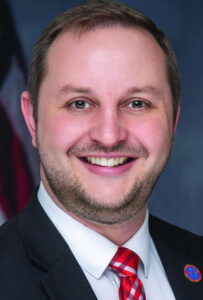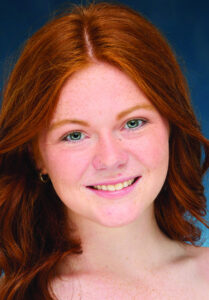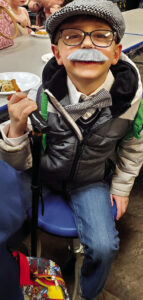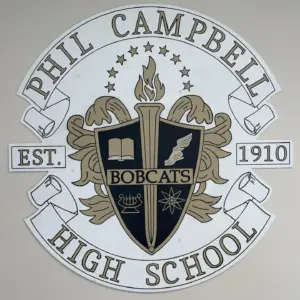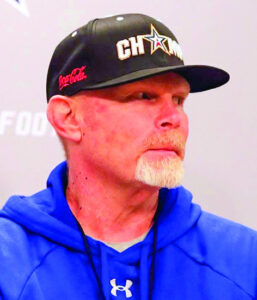STATE OF EDUCATION: WHERE WE ARE Moving every child in a positive direction
By Alyssa Sutherland
For the FCT
Excellence is at the forefront of education in both Russellville City and Franklin County schools, Educators and administrators from each district are proud of recent achievements and offerings for students within their districts.
In Russellville, the school district received an 89 on its state report card, and the academic growth rate reached 100%.
“Growth was outstanding across the system,” said Russellville City Schools Superintendent Tim Guinn. “We’re moving every child academically in a positive direction.”
Meanwhile, Franklin County Schools achieved an 87 on the state report card — the highest score the district has ever seen, according to Franklin County Schools Superintendent Greg Hamilton.
“We’ve put some things in place that have helped with this,” he said. “We’ve added curriculum directors, interventionists and our academic tutoring program.”
The tutoring program, he explained, takes place for a series of weeks each school semester. On Wednesday afternoons until 6 p.m., students can receive teacher support in any subject area in which they are struggling.
Last fall, Hamilton said that on average 300 students county-wide participated each week in the tutoring program.
“Academics are our number one target area,” Hamilton said.
Career Tech
Career Tech Director AnnaKay Holland noted that currently, the Russellville City Schools district is in the middle of a $6.2 million renovation of its career tech center.
The building, she explained, was built in 1970 and had received minimal upgrades.
Housed in the center are programs for welding, automotive technology, building and construction, HVAC, health science and more.
When the renovated center reopens in the fall, students will have updated, stateof- the-art equipment and technology at their fingertips.
A brand-new wing for the school’s fire science program will also be added, complete with a fire truck on campus, and there will be two new computer labs for the business marketing and computer science departments.
“I’ve always said [career tech education] is the most important, because I think those classes bring a higher level of student engagement,” Holland said. “Students who take two or more career tech classes are more likely to be employed post-graduation, have a higher annual income, and are most likely to go on to college and earn a degree or certification.”
Franklin County Schools Career Tech Director Jonathan King agreed, noting that a societal shift has led to greater appreciation for career tech programs.
In his district, King said students can take career tech courses in business education, drafting and design, autobody collision repair, industrial maintenance, construction technology, welding, cosmetology, and health science.
Additionally, family and consumer science classes are offered at every high school in the county, and Phil Campbell High School has aviation classes.
“They’re learning about the instrumentation of flight craft,” King explained. “We also try to tie in drone flying — that’s a big business now for real estate, weddings, law enforcement and more.”
Perhaps most noteworthy is that Franklin County and Russellville City Schools work together to provide students with opportunities available in one district or the other.
Currently, some students from Russellville are bussed to Franklin County’s career tech center for autobody collision courses. In the past, they have attended the district’s cosmetology classes, too.
Guinn noted he “would like to see the partnership grow so [Russellville] and the county can work together for the betterment of our kids.”
Technology
Russellville City Schools recently completed a fiber optic cable update for the entire campus of the city schools.
The update created a “fiber ring” around the campus that now provides redundancy, or the ability to provide uninterrupted connections between schools if a single wire is cut, to every building. The cables were also buried instead of aerial, offering an additional level of protection, according to Technology Director Joel Andrews.
Andrews said the district recently acquired Meta devices and Apple Visions Pros for use in some of the schools.
“These contain great programs the students can use to experience augmented reality,” he said. “They can do things like dissect a human heart or take apart a jet engine virtually to study it — and it can be streamed so other students and teachers can see what the student is doing.”
A newly renovated space at Russellville Middle School is also a hub for technology, according to Andrews.
He described the area that was previously the school library as the future of library media centers thanks to a grant — and makeover — from the Birmingham-based nonprofit EdFarm.
While books are still present, the media center space, deemed “The Huddle,” now contains an entire section of 3D printers, a sound booth where students can record podcasts or music, cut tracks and more, an Esports section with a huge television and multiple gaming systems, and other upgrades.
“This gives them access to practical skills they need in this day and age,” Andrews said, explaining that the goal was to “flip” the way students interact with a traditional library.
Currently, Andrews is working on a policy to shape the way the district will interact with one of the most controversial technological developments — artificial intelligence (AI).
“We’re working on a policy to guide our faculty, staff and students in ethical use of AI,” he said. “AI has great potential in the educational space, and it’s something we want to embrace at Russellville City Schools.”
English Language Learners
In districts with a high population of English language learners, English language learner (ELL) teachers benefit faculty and students alike.
For Russellville High School English, language learner instructor Edmund Martinez, having the opportunity to help students experiencing something he once went through is the best part of his job.
Martinez, who moved from California to Vina at 13 years old, said he was in fourth grade when he tested out of English learner services.
At the time, he said bilingual teachers’ aides in his classrooms made a huge difference in his life.
“That’s the beauty of it,” he said. “When these students — and the majority of our ELL students are Hispanic — are seeing someone who looks like them in their classrooms and can communicate and speak like they do, it makes a huge difference.”
Martinez and other ELL teachers and aides work alongside and co-teach with teachers on a regular basis.
He said that at the beginning of each school year, his team meets with every teacher to make sure they are aware of any ELL students who will be in their classes, explain the level of English each student has attained, and provide professional development and aid to help teachers best help each student.
Some of the accommodations made for ELL students include small group or partnered instruction, translated directions and incremental assessments that check comprehension of material.
It is important to remember, he said, that these students are learning the English language and the content at the same time.
“Many of the teachers we’ve worked with over the years, they’re able to do it themselves now,” Martinez said. “We’re trying to help develop each teacher individually so they can best grow our students.”
The process is working, according to Martinez. He said that currently, Russellville High School has English Learner students still in the ELL program successfully passing Advanced Placement classes.
Additionally, multiple students last year received the Seal of Biliteracy from the state Department of Education.
To obtain the status, students must take a test in both Spanish and English to prove they truly have the command of more than on language.
“For a lot of our students, they will actually be trilingual once they have a command of English, because they speak English, Spanish and a native dialect,” Martinez emphasized. “We expect more of them, always, and expect excellence always, regardless of what their ability is.”
Future Farmers of America
For schools located in rural Alabama, agricultural programs like Future Farmers of America (FFA) provide opportunities to explore the various facets of careers that directly impact small communities.
In Franklin County, FFA chapters are located at Red Bay High School, Vina High School, Phil Campbell High School and Russellville High School.
All four programs work together throughout each school year to participate in field trips and host events like Franklin County Agriculture Day.
Red Bay High School FFA teacher Jarod Massey said the programs in the county are very active.
At his school, students in the agricultural science classes learn carpentry skills, and get introductions to electrical wiring, small engine mechanics and how to operate a greenhouse.
Additionally, he is exploring the use of technology in the agriculture field.
“It is now very technologically advanced,” Massey said of the ag industry. “With GPS technology, fertilizer development through soil sampling and more, the technology is changing at a pretty rapid pace.”
In agriculture, Massey said there is a place for anyone with any interests, and he loves to see his students discover the aspect of agriculture that interests them most.
“FFA gives students a great opportunity to explore endless opportunities,” he said.
Read the rest of the articles
in this year’s Progress — Progress 2025.


